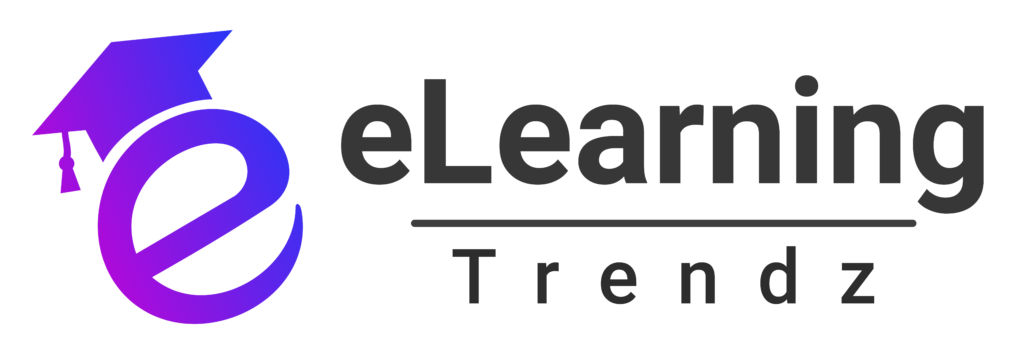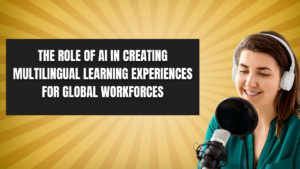Continuing education plays a critical role in today’s knowledge-centric world. Whether professionals seek to upskill, reskill, or maintain industry-standard certifications, a Learning Management System (LMS) can streamline the process by delivering flexible, on-demand learning experiences. Unlike traditional academic LMS platforms designed primarily for universities or K-12 schools, continuing education LMS solutions must address specific needs such as compliance tracking, professional certifications, and frequent updates to course materials.
In this post, we explore nine standout LMS platforms that excel in meeting the demands of lifelong learning and ongoing professional development. Each system brings unique strengths to the table, from customization and user engagement tools to analytics and e-commerce capabilities.
1. Moodle Workplace
Moodle was originally developed by Martin Dougiamas in 2002. Moodle HQ is based in Perth, Australia, and coordinates the open-source Moodle project with a global community of developers and educators. Moodle Workplace is an extension designed specifically for workplace learning, offering commercial support and enterprise features under Moodle’s broader umbrella.
Key Features
- Customization: Offers modular components for creating highly tailored learning paths.
- Multi-Tenancy: Ideal for companies that need separate learning environments for different branches.
- Compliance Tracking: Simplifies oversight of certifications and regulatory requirements.
- Blended Learning: Accommodates face-to-face sessions, virtual classes, and self-paced modules.
Why It’s Great for Continuing Education
Moodle Workplace retains Moodle’s flexibility while adding enterprise-ready features aimed at professional development. Its open-source nature supports extensive customization, making it a favorite among organizations that need to adapt training regularly for industry changes or compliance shifts.
2. Canvas by Instructure
Instructure, Inc., an education technology company founded in 2008 and headquartered in Salt Lake City, Utah (USA), developed Canvas. Instructure’s mission is to make teaching and learning easier for everyone, and Canvas has become one of the leading LMS platforms in academic and professional settings worldwide.
Key Features
- User-Friendly Interface: Known for intuitive navigation and clean design.
- Rich Multimedia Support: Easily embed videos, interactive quizzes, and external applications.
- Robust Analytics: Provides data on learner engagement, progress, and completion rates.
- Mobile Accessibility: Offers a well-structured mobile app for on-the-go learning.
Why It’s Great for Continuing Education
Canvas stands out for its user-centric design and a deep ecosystem of third-party integrations. For adult learners balancing full-time work with ongoing education, Canvas’s straightforward interface and mobile compatibility make staying committed to professional development courses easier.
3. Blackboard Learn Ultra
Blackboard Inc. was founded in 1997 and became well-known for its e-learning software solutions. The company has undergone various transformations and mergers, recently joining forces with Anthology to broaden its educational technology offerings. Blackboard Learn Ultra represents the next generation of the Blackboard platform, emphasizing a modern user experience and powerful collaboration features.
Key Features
- Advanced Collaboration: Discussion boards, group projects, and real-time chat features encourage peer learning.
- Streamlined Interface: The “Ultra” experience reduces visual clutter and eases navigation.
- Adaptive Release: Personalized content delivery based on learner performance or prerequisites.
- Performance Dashboards: Comprehensive data on engagement, activity, and achievement.
Why It’s Great for Continuing Education
Blackboard Learn Ultra is recognized for its strong collaborative tools, which benefit professional learners. In fields where discussion of case studies and best practices is crucial—like healthcare or financial services—real-time engagement can greatly enhance skill development and knowledge retention.
4. D2L Brightspace
Brightspace is developed by D2L (Desire2Learn), a Canadian-based company founded in 1999. Headquartered in Kitchener, Ontario, D2L focuses on creating innovative education technology products used by schools, universities, and businesses worldwide. Brightspace is D2L’s flagship LMS, known for its modern design and advanced personalization features.
Key Features
- Adaptive Learning: Dynamically adjusts content difficulty according to learner progress.
- Competency-Based Education (CBE): Emphasizes mastery rather than mere course completion.
- Simplicity and Accessibility: Modern interface designed with user experience in mind.
- Detailed Analytics: Tracks learner performance, enabling focused interventions.
Why It’s Great for Continuing Education
Brightspace excels in competency-based education, making it ideal for continuing education programs where demonstrating real-world skills is more important than seat time. This adaptive approach ensures learners invest time where it’s most needed, helping them gain tangible expertise.
5. TalentLMS
TalentLMS is a product of Epignosis, an eLearning software company with roots in Athens, Greece, and a strong global presence. Established in 2012, Epignosis focuses on simplifying the learning experience for organizations of all sizes. TalentLMS has quickly gained popularity due to its intuitive interface and flexible pricing models.
Key Features
- Quick Setup: Easy to deploy with minimal technical requirements.
- Gamification: Offers badges, points, and leaderboards for a motivating learning environment.
- Course Marketplace: Access ready-made professional courses on various topics.
- Scalable Pricing: Suitable for small organizations or enterprise-level initiatives.
Why It’s Great for Continuing Education
TalentLMS prides itself on user-friendliness, making it a top pick for organizations that must launch or update training programs quickly. Its built-in course marketplace can provide supplemental materials for professionals seeking diverse skills, while gamification encourages consistent participation—key for adults juggling multiple responsibilities.
6. LearnUpon
LearnUpon was founded in 2012 and is headquartered in Dublin, Ireland. The company has grown quickly thanks to its focus on delivering an easy-to-use, scalable LMS solution. LearnUpon’s client base includes multinational organizations and training providers across various industries, reflecting its versatile approach to online learning.
Key Features
- Multi-Portal Support: Establish multiple portals for different clients or departments under one system.
- E-commerce Integration: Perfect for businesses selling courses to external learners.
- Certification Management: Tracks completion, renewal dates, and ongoing accreditation needs.
- Streamlined Onboarding: Efficient user provisioning and single sign-on (SSO).
Why It’s Great for Continuing Education
LearnUpon’s strong corporate training and e-commerce features cater to organizations that monetize their professional development offerings. This makes it an ideal platform for associations, training companies, and large enterprises that provide continuing education to external audiences and must manage renewals and compliance seamlessly.
7. Docebo
Docebo was founded in 2005 in Italy and has since expanded globally, with a notable presence in North America. Now headquartered in Toronto, Canada, Docebo offers a comprehensive suite of learning solutions for internal and external training needs. Their focus on innovation has led to rapid adoption across corporate, government, and non-profit sectors.
Key Features
- AI-Powered Learning: Recommends content based on performance and user behavior.
- Social Learning: Encourages user-generated content, peer reviews, and knowledge sharing.
- Extended Enterprise: Capable of training external partners, resellers, and customers.
- Flexible Integrations: Connects with CRMs, HR systems, and other business tools.
Why It’s Great for Continuing Education
Docebo’s emphasis on AI-driven personalization and social learning sets it apart for professional development environments. Its social features help adult learners exchange insights, discuss industry trends, and solve problems together—fostering a collaborative learning culture beyond formal coursework.
8. Absorb LMS
Absorb LMS is developed by Absorb Software, headquartered in Calgary, Canada. Founded in 2002, Absorb has grown into a global provider of LMS solutions serving healthcare, finance, and higher education industries. With a strong emphasis on customer support and ease of use, Absorb LMS remains a top choice for organizations seeking a polished, enterprise-friendly platform.
Key Features
- Modern UI: Presents a sleek, intuitive dashboard for administrators and learners.
- Automated Enrollment Rules: Assigns courses based on role, prerequisites, or user actions.
- Custom Learning Paths: Aligns professional goals with sequential course progression.
- E-commerce Capabilities: Allows for direct selling of individual courses or course bundles.
Why It’s Great for Continuing Education
Absorb LMS offers a clean, user-focused interface that appeals to working professionals. It excels in enterprise environments, providing advanced enrollment automation and straightforward e-commerce features—vital for organizations that must sell continuing education courses or bundle them for certifications.
9. Paradiso LMS
Paradiso Solutions, a Silicon Valley-based company with a global presence, developed Paradiso LMS. Founded in 2007, Paradiso Solutions provides blended learning solutions, content development services, and LMS integrations. Their focus on innovation and user engagement has positioned Paradiso LMS as a reliable choice for organizations looking to expand and diversify their continuing education programs.
Key Features
- Multi-Tenant Architecture: Supports separate portals for departments or external clients under one centralized system.
- Course Authoring Tools: Includes a built-in authoring tool and supports SCORM/Tin Can API for seamless content creation and tracking.
- Social Learning and Gamification: Provides discussion forums, leaderboards, badges, and virtual rewards to keep learners engaged.
- Robust Integrations: Easily integrates with CRMs, HR systems, and e-commerce platforms to create a unified learning ecosystem.
Why It’s Great for Continuing Education
Paradiso LMS caters to organizations needing end-to-end solutions for continuing education. Its powerful multi-tenant architecture allows trainers to create distinct learning environments for various professional groups, franchises, or client segments. The platform’s combination of social learning, gamification, and straightforward content creation ensures that users remain motivated and can easily find relevant coursework for their industry-specific requirements.
Key Considerations for Choosing an LMS for Continuing Education
- Certification and Compliance: Ensure your chosen platform simplifies the tracking and renewal of certifications.
- User Engagement: Look for features like gamification, discussion boards, and live webinars to boost long-term participation.
- Scalability and Multi-Tenancy: Multi-portal or multi-tenant capabilities can be essential for organizations serving multiple audiences.
- Analytics and Reporting: Detailed data on learner progress, course completion, and engagement informs continuous improvement.
- E-commerce Integration: If you plan to sell courses externally, built-in payment gateways and subscription models are vital.
Conclusion
Selecting the ideal LMS for continuing education hinges on understanding both your organizational goals and the learning styles of your target audience. From Moodle Workplace for customizable enterprise solutions to Paradiso LMS with its multi-tenant support, each platform offers unique strengths that cater to the evolving demands of professional development. Whether you prioritize detailed analytics, integrated e-commerce, or cutting-edge AI features, aligning your chosen LMS with the core requirements of lifelong learning ensures content remains accessible, relevant, and engaging. By investing in an LMS suited for continuing education, you empower learners to stay competitive, compliant, and consistently up-to-date in a fast-changing professional landscape.









